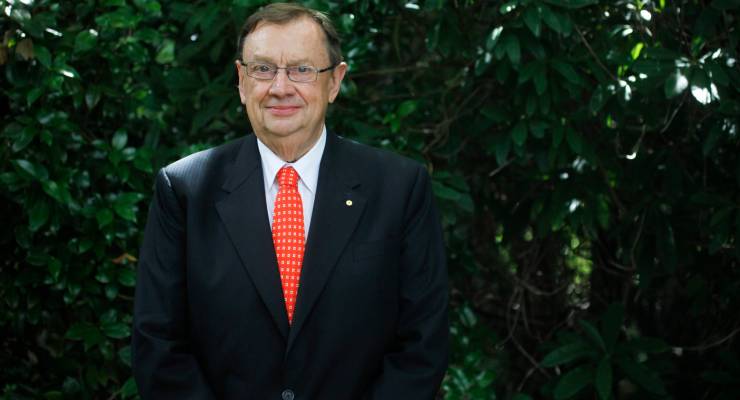
“I’m probably the most powerful man in the media, I guess,” ad buyer, perennial rich-lister (until recently, at least) and prolific board member Harold Mitchell once told Crikey.
Or, as Jane Cadzow put it her Good Weekend profile a decade ago:
A word from him, and a car manufacturer will switch its multi million dollar account from one network to another. At his suggestion, a department store will promote its mid year clearance sale in a newspaper rather than on radio. Consequently, broadcasting and publishing bosses promptly return his calls.
Now Mitchell has been named in new Federal Court proceedings brought by the Australian Securities and Investments Commission, following an investigation into Tennis Australia’s decision in 2013, to award television rights to Seven for a five-year period without a competitive tender process. ASIC alleges he “passed on to the Seven Network confidential information about the interest of its competitors in acquiring the rights”.
His influence — not just in terms of the $100s of millions in ad revenue he controlled, but in the resume of board roles and directorships he’s held — is staggering.
Apart from his role at Tennis Australia, there was the Florey Institute of Neuroscience and Mental Health, the New York Philharmonic, the National Gallery of Australia, the Museum Board of Victoria, Opera Australia, the Deakin Foundation and the Melbourne International Festival of Arts, a director at Crown Casino, the chairman of ThoroughVision, CARE Australia, the Melbourne Symphony Orchestra, the Melbourne Rebels rugby team, broadcaster TVS, Art Exhibitions Australia, the Deakin Foundation and the Melbourne Recital Centre, the National Gallery of Australia, the Melbourne Festival, the Museums Board of Victoria, the Asthma Foundation. There’s a reason this publication judged him “Melbourne’s most powerful man” in 2013.
What will happen to his reputation now?
The allegations ASIC are now pursuing have been around for some time — the Australian Financial Review reported in 2013 on Mitchell’s opposition to a new competitive bidding process for the Australian Open’s annual $21 million Channel Seven TV rights deal. Mitchell, at the time, was placing millions of dollars every year with Seven as the executive chairman of the Australian arm of Aegis Media and the paper argued he wanted the five-year Seven arrangement that was in place to be rolled over.
Indeed, AFR‘s Rear Window column had to apologise to Mitchell (himself a former Fairfax columnist) for their references to it — today’s column wryly notes they won’t be withdrawing that apology just yet.
But the broad allegations are now buttressed by very specific details in ASIC’s court filings; Mitchell allegedly telling Seven executives to “leave it with me”. Later, a Seven executive allegedly told his colleagues, “the plain fact is that the CEO of Tennis Australia does not want to do this deal … we have to hope Harold can carry the board”.
Prior to the negotiation controversy, in 2010, Four Corners reported that Mitchell had “literally stood over (now resigned) Tennis West president Dean Williams” before a crucial vote on Geoff Pollard’s reelection as Tennis Australia president, with Williams claiming Mitchell had told him the Seven broadcast deal could be revoked if Pollard’s rival Paul McNamee was elected instead.
In light of this morning’s revelations, Mitchell simply said, “I’ve always acted in the best interests of Tennis Australia, and the matter is with my lawyers”.








I remember an article from Harold prior to Abbott being elected telling us how once the libs were elected confidence would resume and good government would be restored blah blah blah.
No, really!